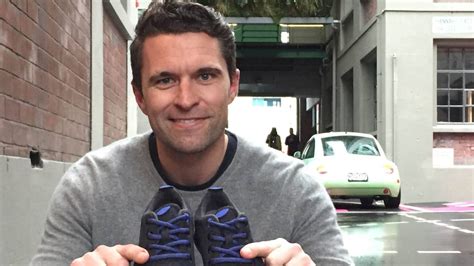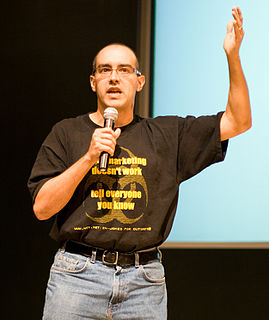A Quote by Brock Pierce
VCs invest in innovation and disruption, but how often do they innovate themselves?
Quote Topics
Related Quotes
The biggest challenge is that when people look at low price point products, they essentially invest less money in development, innovation, and new technology. And in order to innovate at a lower price point, and make sustainability attainable to the masses, you have to invest more. But that's counterintuitive for a lot of businesses.
Prosperity in human society is misunderstood. The difference between a rich and poor society is the number of problems that society solves for its citizens. That means technological innovation is the source of all prosperity, but with every tech innovation, you also get disruption - ultimately, social and civic disruption.
Democracy is disruptive. Around the world, peaceful protesters are being demonised for this, but there is no right in a democratic civil society to be free of disruption. Protesters ideally should read Gandhi and King and dedicate themselves to disciplined, long-term, non-violent disruption of business as usual - especially disruption of traffic.
The last 10 to 20 years you’d think that it has been all about VCs making money, because that’s all we hear about. But really it is all about VCs failing and failing to return capital and being f**king idiots. VCs are stupid. They are absolutely stupid. Does anyone want to challenge that statement? Does anyone think that VCs are not stupid?
If you look across the economy, if you have multiple players in an industry, you have more customization, more innovation, greater choice for consumers. The more you have consolidation, the less likely you are to invest in innovation. It becomes all about driving down cost and mass production. And that's not good for innovation in an industry.


































